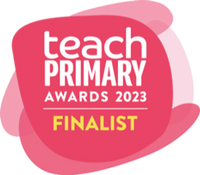Disciplinary Literacy: one of the gang
My understanding of disciplinary literacy has taken much the same route as my understanding of Tier 2 vocabulary (I’ve written about this before). Initially, as a time impoverished teacher, I wanted a quick fix- so I searched for ‘disciplinary English terms’ on Google to identify the English specific Tier 2 words I should be teaching.
But I’ve come to appreciate that it’s much more nuanced than that. I’ve spoken to a number of schools recently about this issue, and I’m beginning to ask school and subject leaders to think of it as making sure that your learners are ‘one of the gang.’
Think of it this way: if you drive a car, you’re likely a much more effective driver now than you were when you initially passed your test. Even though some of the stuff your instructor told you and that you learned to get through your theory has fallen by the wayside (or is that just me?), you can navigate the roads with more confidence and assurance than when you first removed your L plates.
But why?
It’s the subtleties. The nuance. The minutiae that comes only with experience. Yes, vocab lists and sentence openers might represent an important part of the puzzle, but Rosenshine’s ‘provide scaffolds’ was only one of a set of ten principles.
“Doing” Humanities
For me, a key shift came when I heard Professor Timothy Shanahan speak about how different disciplines have different ‘reasons for being’.
So, you must think about your subject (and, actually, your curriculum’s place within it).
To “do humanities” is to explore the human experience in probably a more qualitative way than, say, literature. As a literature expert, so many of my colleagues will tell you that it explores what it means to be human, but I’d say this is reflective of a much more universal level of understanding. Macbeth’s tragic downfall is a literal echo of the Downfall of Man - by design (excuse the pun).
Humanities, then, is about exploring, reflecting upon, comparing and reasoning about an incredibly diverse range of human experiences. In many ways, it’s trying to pull in the opposite direction of literature in a much more qualitative way. On a continuum, it probably sits closer to mathematics and the sciences than Literature.
5 ways to promote disciplinary literacy in the humanities classroom:
1. Encourage scepticism and critical awareness
Because of where humanities sits on the continuum of subjects, the range of texts to expose learners to comes from a much wider base. Shanahan reflected on the sceptical nature of a good historian, so teaching pupils to have - at some level - systematic approaches to a range of texts is crucial to developing this. We often assume that literacy is only written, but we need to start to encourage a broader line of metacognitive thought when approaching a text. In other words:
- What is this?
- When is this?
- Why is this?
- How might this shape the meaning?
You can read more about critical literacy in a previous blog that we have written.
2. Right text, right time
For all kinds of reasons, we need to be thinking about the sequencing of our curriculum, and this includes the diversity of texts that we’re exposing our learners to. Reflecting on my previous point, wouldn’t it be so much more powerful to ask those questions in light of other texts that have been studied in recent lessons? Defining ‘perspective’ is one thing, but actually experiencing the impact and shaping of meaning based on an author’s socio-historical perspective is infinitely stickier than experiencing silos of sources devoid of any contextual meaning.
3. Right skill, right time
There’s a common theme emerging: timing. Lawrence et al (2019) write brilliantly about the fusion of primary sources with explicit teaching of disciplinary skills, reframing explicit teaching of critical thinking and analysis, all of which were focussed on social studies topics that learners then reflected upon in terms of their own lives. In other words, explicit modelling- whether it be think alouds, trigger words or co-constructing work together- was key to making learners one of the gang.
4. Think concept, not vocab
This particular line of argument means a lot to me. Thinking of history solely in terms of facts that are collated and sequenced is misguided. We should move away from thinking solely about key words, but towards concepts. By this, I mean the explicit teaching of concepts such as bias, context, perspective and inevitability. Bedrock’s Tier 3 Mapper system allows the explicit sequencing of this type of thing; when you move from thinking about content and subjects as liner, and move into the realms of concepts and powerful knowledge, when you design your learning sequences and schemes of work, you’ll likely find that although you (and your learners) will be thinking harder, it won’t necessarily mean working harder.
5. Write like an expert
Katherine Mortimore’s Disciplinary Literacy consistently frames learning from the perspective of lower prior attainers, and she brilliantly says, these children ‘are best taught by teachers who have an exceptionally secure appreciation of their subject and a passion for it.’ It reminds me of a comment once made to me about modelling: that producing a WAGOLL and asking pupils to learn from it without deconstructing it is tantamount to taking them to a Michelin Star restaurant, serving up coq au vin and then asking pupils to replicate it. So let’s take a step back from our WAGOLLs: the next time you see one or write one, ask:
- How do the sentences open, and why?
- What verbs are used?
- What adjectives or adverbs are used?
- How are noun phrases used?
- How is the text sequenced in terms of discourse markers?
Unpicking these things can feel like a painstaking process, but it’s one of those with real, tangible long-term benefits.
There are no quick fixes here: perhaps it’s better to view disciplinary literacy as a lens through which to plan and deliver your curriculum. Always remember, though: it’s about making your learners one of the gang. And everyone has a right to feel like they belong!





